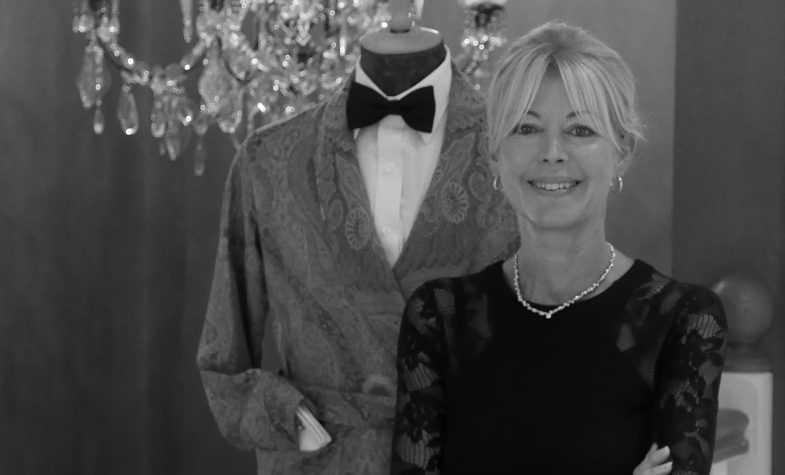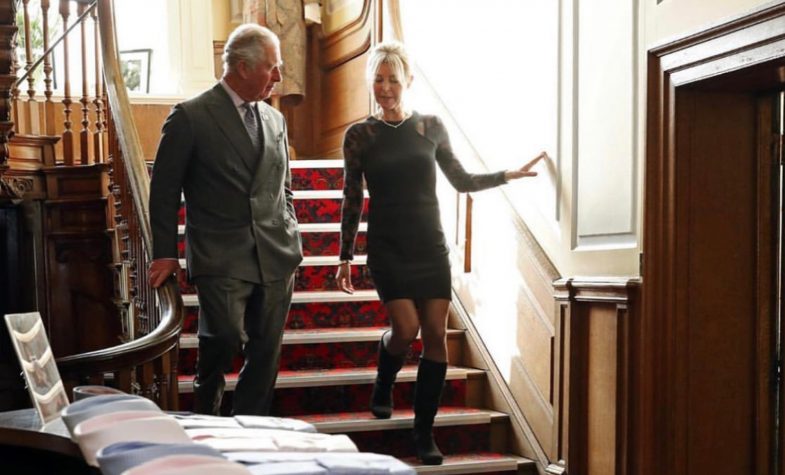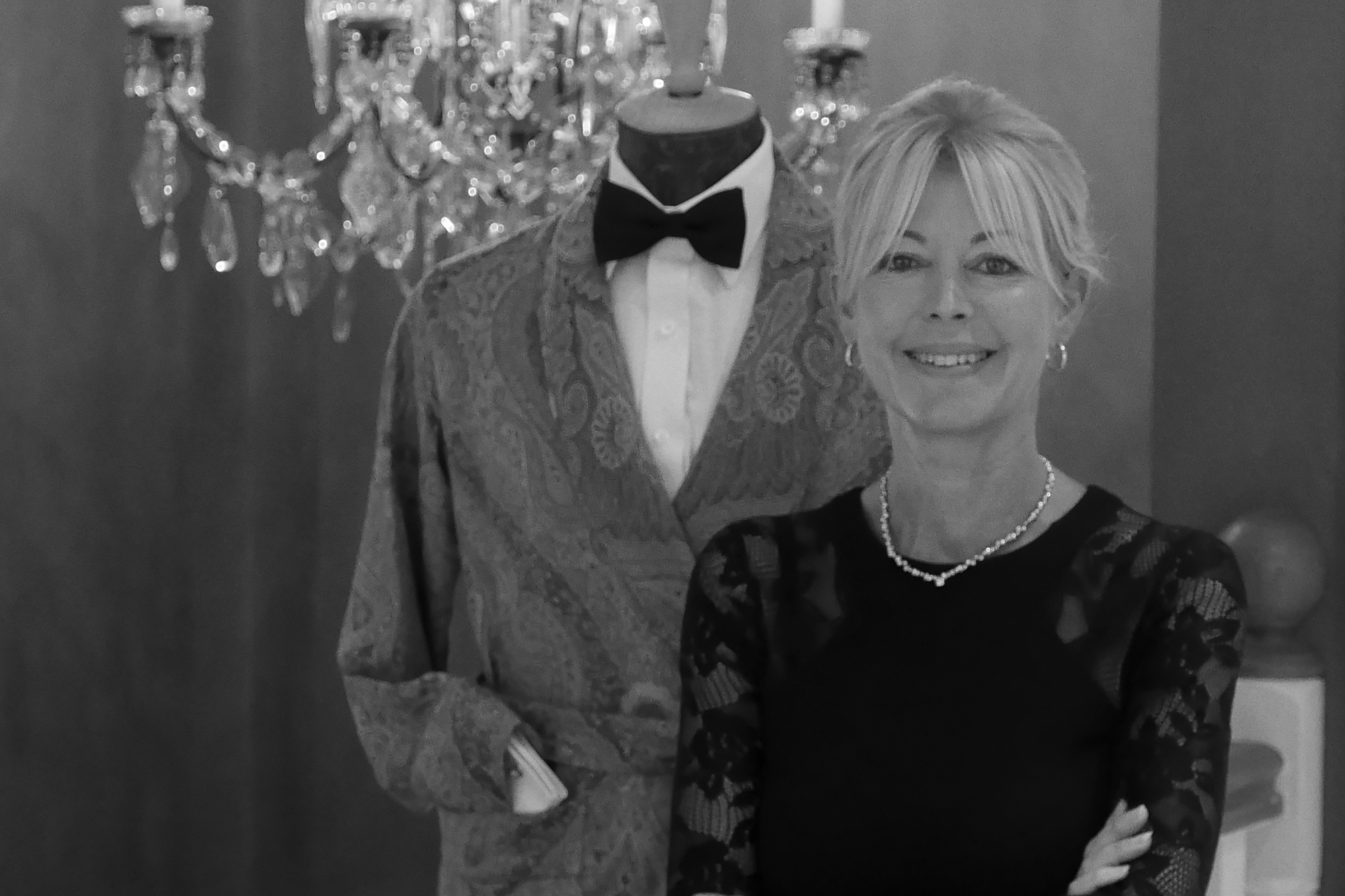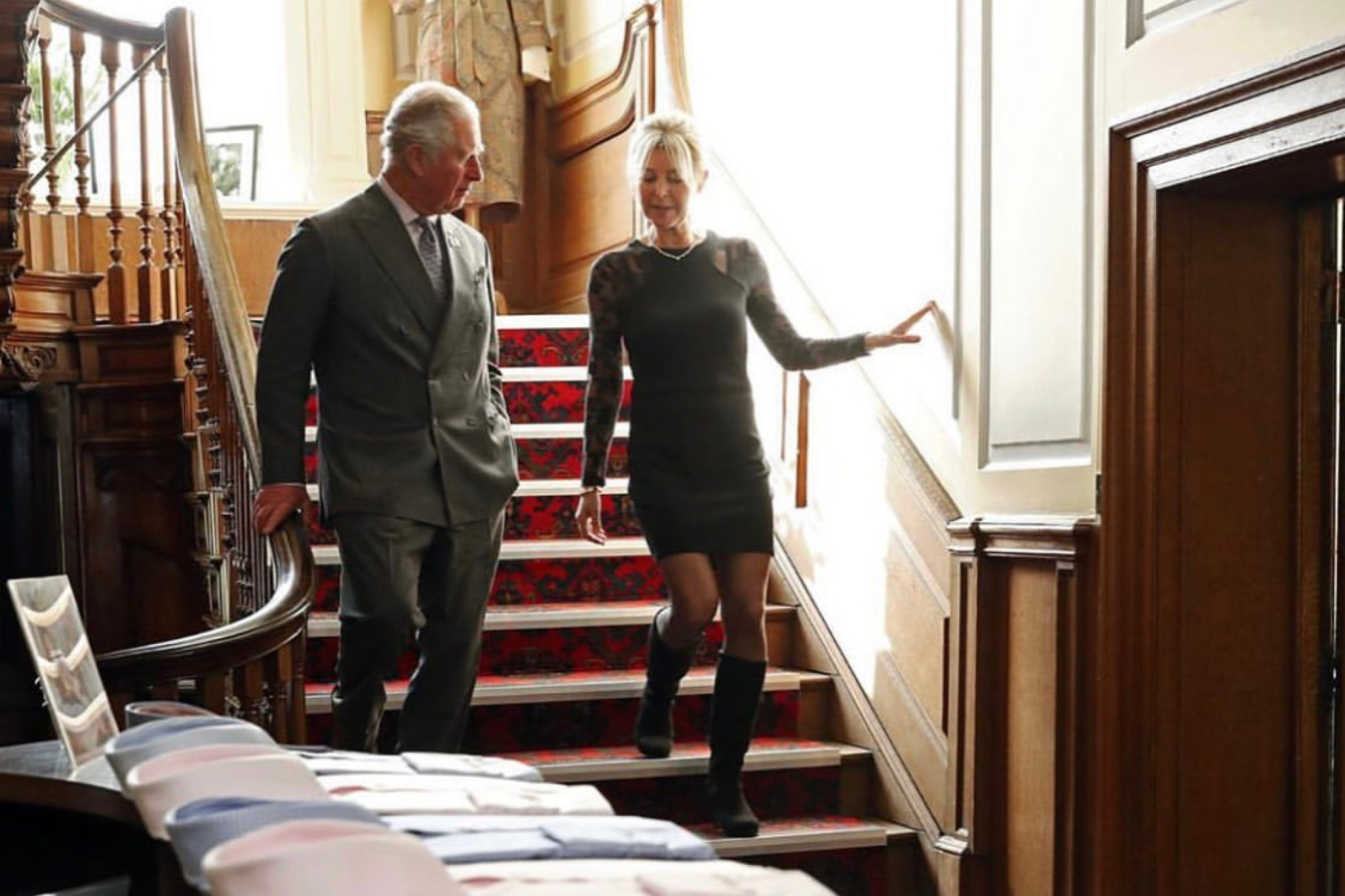The idea for the sewing studio came about when I visited Gloucester’s St James City Farm for the The Queen’s Award for Voluntary Service. It was on a beautiful day around five years ago and I came upon a little piece of heaven on earth. It’s in the middle of quite a deprived area of Gloucester and it’s in a very multicultural area – there are a lot of refugees. I was standing there in the sun, among ponies, rabbits and an eagle owl, talking to the local vicar, Imam, town crier and Imran Atcha, who it turns out is the coordinator for the Friendship Café, a bigger charity that helps coordinate youth and community groups in the area. I made an appointment to see him the next day and we met to discuss the idea of setting up a sewing studio and school in the community.
I explained to Imran that I thought that there would be a lot of people in this area of the city who would like to learn how to sew and that many of the refugees would already have sewing skills but not have access to a good, industrial sewing machine to continue the craft either for work or pleasure. I needed to find a very well connected woman in the local community to assist me with the idea and asked Imran if he had any suggestions. Without a pause he said that would be Aysha Randera. I called her the next day and we talked and talked, getting on immediately and bouncing ideas back and forth. Aysha loved the idea and said she would be happy to help me with it. That was the beginning of our project and a great friendship, linking together two different aspects of Gloucester and its communities.
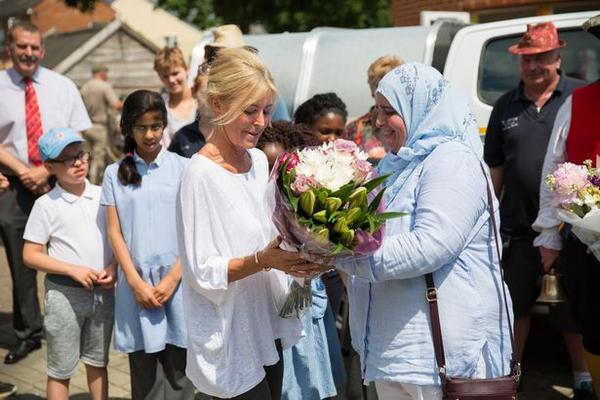
Aysha put together a WhatsApp group with everyone who uses the Friendship Café and we contacted them to see who would be interested in sewing classes. We had a huge response, so much enthusiasm and we arranged a meeting at the Friendship Café for those wishing to apply. We chose six each term and started the classes in one of the spare sewing rooms of our company’s Gloucester townhouse, Bearland House, as at that stage there was not a suitable space at the Friendship Café. My head seamstress Kath Muir happily agreed to teach, passing on her 30 years of bespoke sewing experience and we ran classes after our factory closed at 4.30pm. After three terms of teaching a large room became available at the Friendship Café but which needed a lot of work, including installing windows. We made plans to fundraise among my supportive friends in the country, to create a spacious, light, well equipped sewing studio and I offered Aysha a place at our business for a year as our fifth student on the Condé Nast Scholarship programme we run. Being the mother of three young children, she took a bit of convincing but she took it on for a year and she was fantastic.
The Emma Willis Condé Nast Scholarship was a scheme I put together with the chairman of Condé Nast International, Jonathan Newhouse. I always try to champion and highlight the importance of different talent and skills in the fashion business, especially how vital skilled machinists are and a member of the then government had introduced us, having heard us both speak along the same lines. It is not at all just about the designers, we cannot make beautiful clothes if we don’t nurture and develop sewing skills and you need at least 10 machinists for every cutter. It’s also a very rewarding job, creating something beautiful, and can contribute to psychological well being, so important to consider these days with mental health being such a serious issue for so many young people.
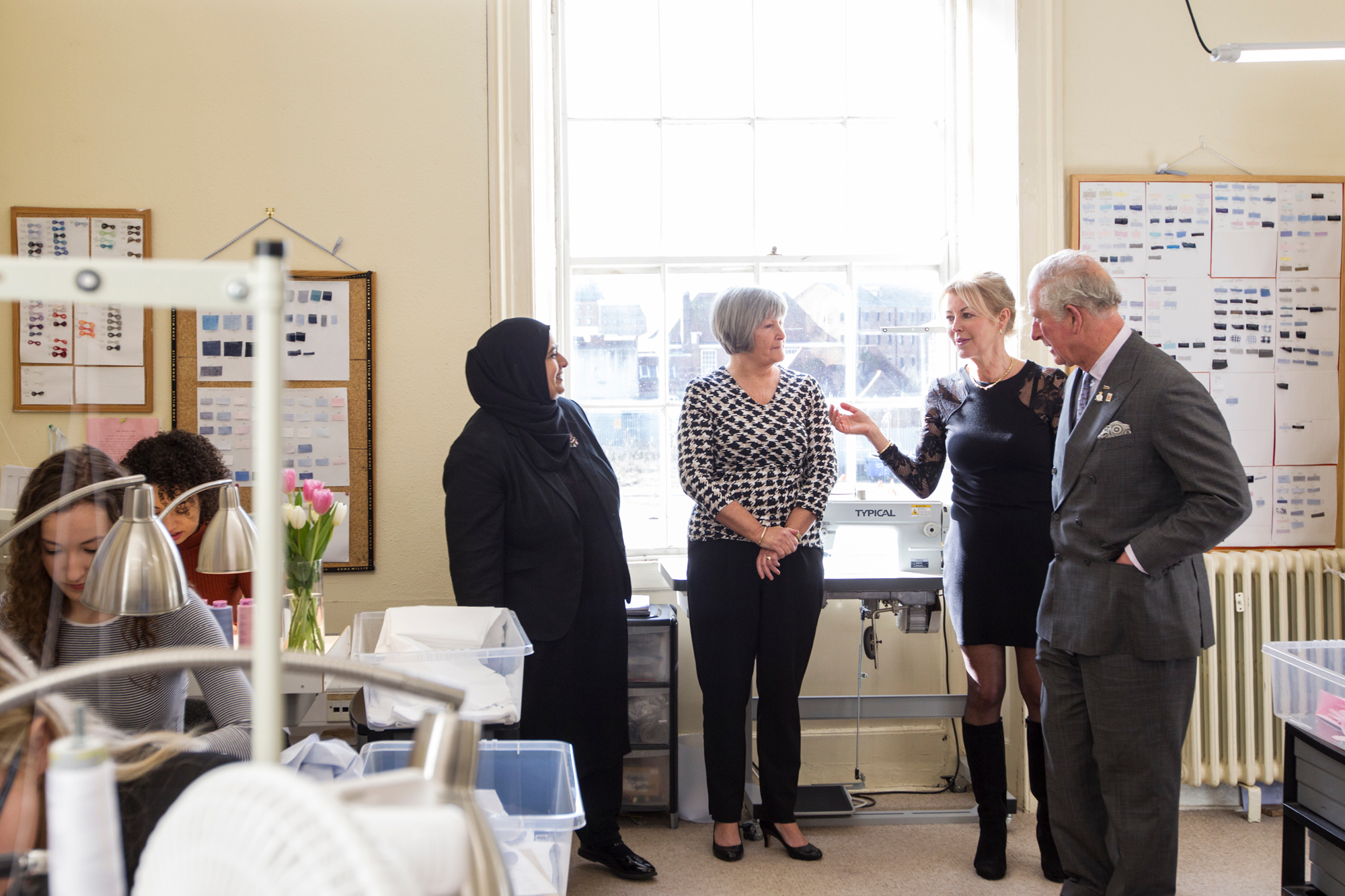
Aysha already knew how to use a sewing machine but using an industrial one was a new challenge due to their speed. She learned to make a shirt from beginning to end – it’s no mean feat to learn to do all the parts in a year! Towards the end of her year with us, Imran’s daughter was getting married and Aysha made him a bespoke shirt for her wedding, beautifully made and the perfect fit. Aysha was now ready to teach sewing to other people and teach them to make a shirt, which I hoped would be a skill they could possible earn a living from in the future. Aysha sees the sewing centre more as a social gathering place and we used to have a little bit of friendly banter on that: ‘Come on Aysha, people have to be able to make some money!’ And she said: ‘But this is such a lovely place for people to make friends.’
We started in a small room in the Friendship Café and then raised the money through local friends for whom I gave a dinner party, and invited Aysha and Imran to share with them what had so inspired and impressed me when I first met them. It took a lot of work to get it ready – knocking out windows, removing all the partition walls, with much of the work being done by volunteers and the excellent Gloucester Community Payback, who organise offenders and ex-offenders to give their time for free – and our company donated the sewing machines.
The Emma Willis Sewing School opened in November 2019 and ever since has been chock-a-block with endless lessons in sewing, crocheting, pattern making and knitting. Aysha runs about two classes a day and the more experienced all share their skills with those starting something new. It’s a very social as well as creative place, which is wonderful.
All kinds of things could come out of the sewing studio, perhaps a commercial venture. We might have a little shop in Gloucester and make beautiful clothing for the Asian market – beautiful dresses rather than shirts – there is a lot of talent coming through the studio that I hope may be the beginning of many business.
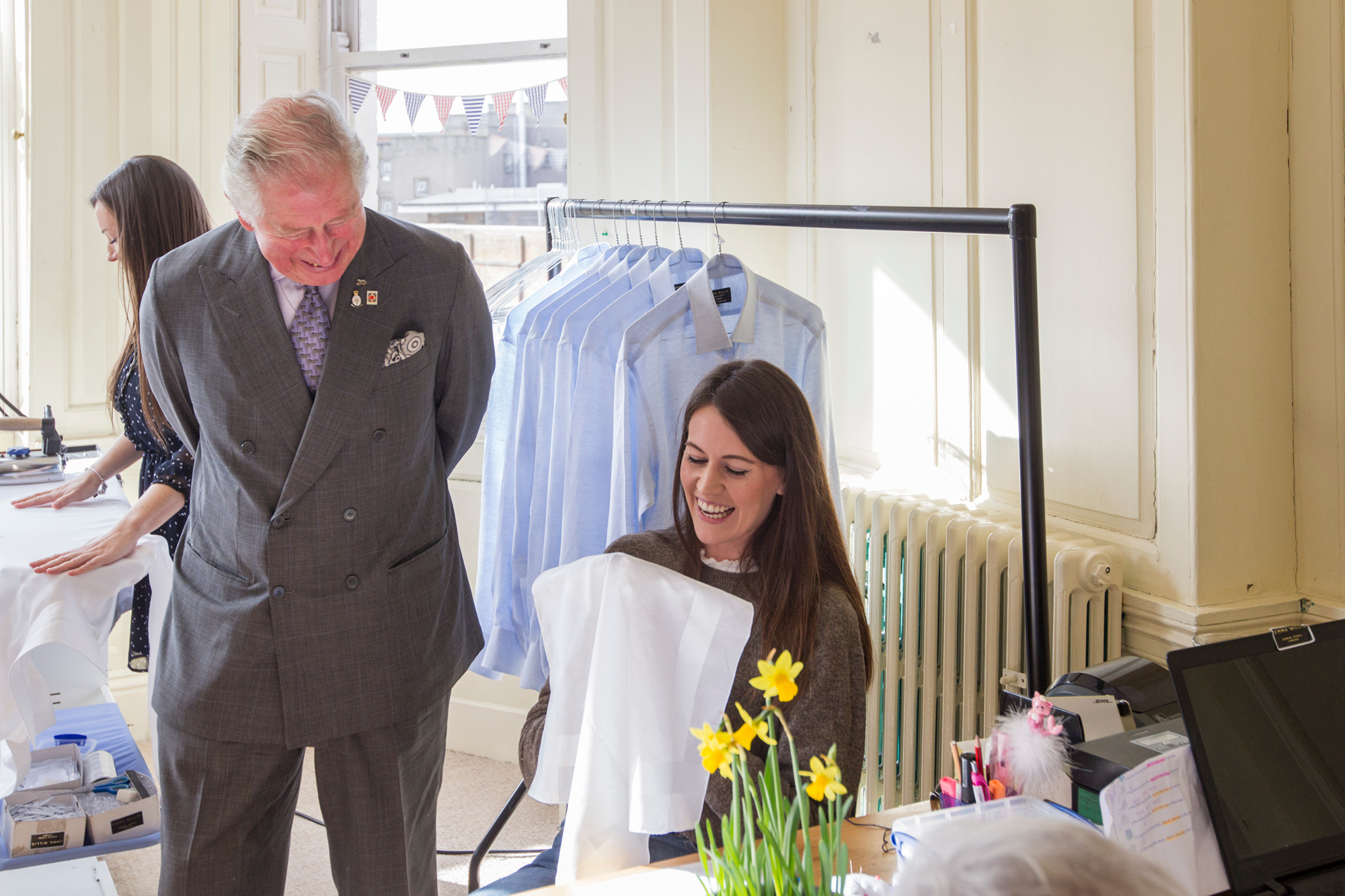
Gloucestershire is a county of extremes – poverty and extraordinary wealth side by side – but it doesn’t mean people don’t want to support each other. Cheltenham Races and The Jockey Club, for example, have given considerable support to City Farm and are now sponsoring a young jockey whose silk the ladies at the sewing studio have designed and made.
Community is really important to me. It means a lot to use what I have through my business and give back now I’ve built up good contacts and am confident enough to try and connect people. I remember selling clothes door-to-door for five years while I was trying to get started. Making a living and finding your path in life can be a real struggle, so to be able give opportunities to others now is what I enjoy most about my business.
We also have our charity, Style for Soldiers, where we make clothes for injured servicemen as well as organising reunion parties to introduce veterans’ partners, wives and children and keep them together post medical discharge from the Forces with often life-changing injuries. Again that is supported through the business, my customers and friends and the contacts that I have made over the years. We’ve been on Jermyn Street for 20 years and the store has built such an incredible address book of people. Cross-pollination can achieve so much.
I’m going to continue blowing the trumpet of manufacturing in the UK. There is no reason why we can’t invigorate traditional manufacturing areas with some investment. The ‘made in England’ and ‘made in Britain’ labels have so much value worldwide that we have a real head start. If we could marry our invaluable reputation for quality with investment, we could create rewarding creative jobs in the manufacturing business and restimulate what we have done so beautifully for so long.

